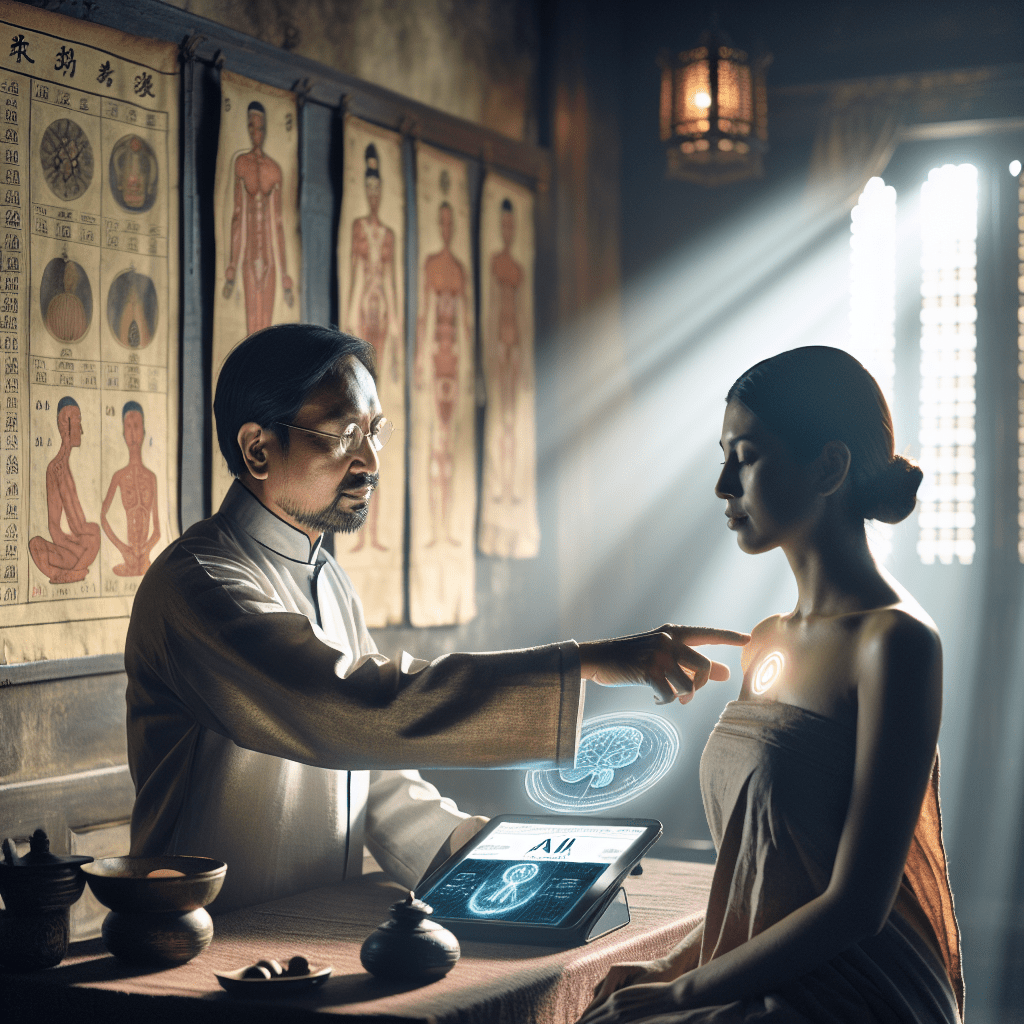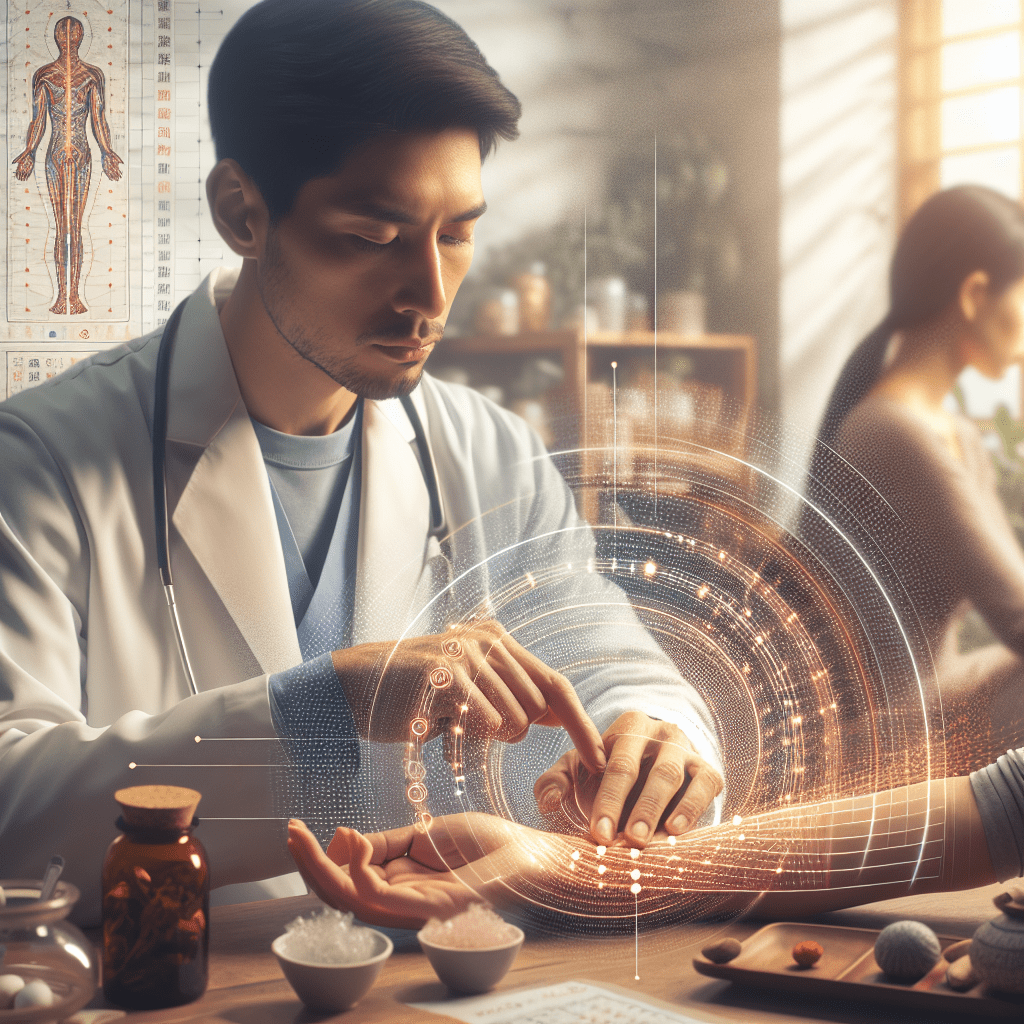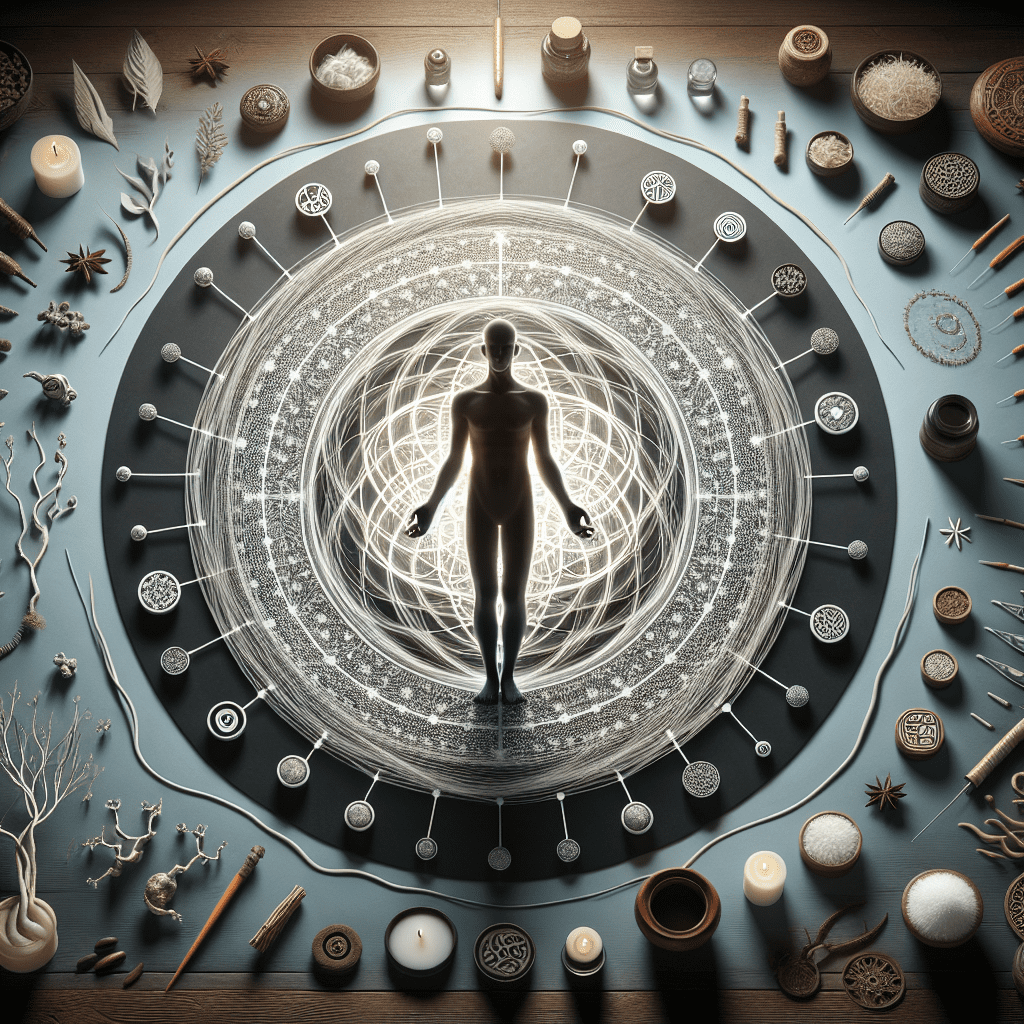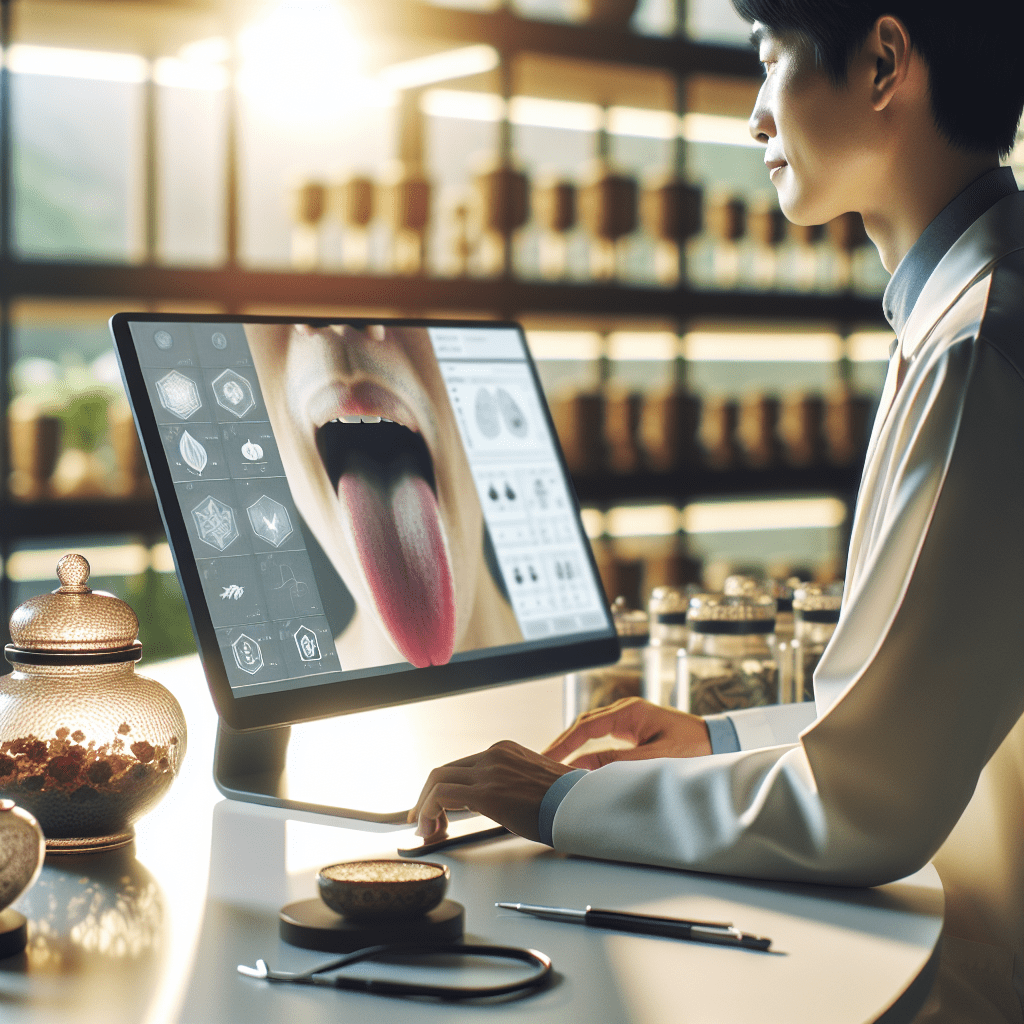Imagine a world where the wisdom of ancient healers meets the cutting-edge capabilities of artificial intelligence. It’s not science fiction—it’s happening right now. The marriage of Traditional Chinese Medicine (TCM) and AI technology is creating a revolutionary approach to health that might just transform how we defend our bodies against illness and stress. This fascinating blend brings together practices that have endured for thousands of years with computational power that can process billions of data points in seconds. For those of us who prefer natural, holistic approaches to wellness, this integration offers exciting new possibilities for personalized healthcare that honors Eastern healing traditions while embracing modern innovation.
Where East Meets Tech: Understanding AI and TCM Integration
At the intersection of ancient wisdom and cutting-edge technology lies a revolutionary approach to healthcare that honors tradition while embracing innovation.
Traditional Chinese Medicine and artificial intelligence might seem like they come from completely different universes. One originated over 2,000 years ago in ancient China, while the other represents the frontier of modern technological advancement. Yet, when brought together, they create a powerful synergy that enhances both practices.
At its core, TCM views health as a state of harmony and balance within the body’s systems. It’s built on fundamental concepts like Qi (vital energy), the balance of Yin and Yang, and the Five Elements theory. TCM practitioners assess these intricate patterns through techniques like pulse diagnosis, tongue examination, and detailed questioning about lifestyle and symptoms.
Meanwhile, AI excels at detecting patterns in vast amounts of data that would be impossible for humans to process manually. It can learn from experience, adapt to new inputs, and make predictions based on complex relationships between variables. This analytical prowess is precisely what makes AI so valuable in complementing TCM approaches.
The AI and TCM integration allows for a deeper understanding of how traditional remedies work. For example, machine learning algorithms can analyze thousands of historical TCM case studies to identify which herbal combinations have been most effective for specific conditions. AI can also help decode the complex relationships between symptoms and underlying imbalances that TCM theory describes, making these ancient insights more accessible to modern practitioners and patients alike.
Boosting Your Body’s Defenses: AI-Enhanced TCM for Immunity
Discover how AI is amplifying TCM’s natural approaches to immunity—creating a defense system tailored to your unique body.
One of the most promising applications of AI and TCM integration is in strengthening our immune systems—something that’s on everyone’s mind these days. TCM has always emphasized prevention over treatment, with numerous herbs and practices specifically designed to boost immunity and fend off illness before it takes hold.
AI brings new power to these ancient approaches by analyzing which TCM interventions have historically worked best for different body types and conditions. For example, machine learning algorithms can process data from thousands of patients to determine that a specific herbal formula might be 80% effective for individuals with a particular constitutional type, but only 40% effective for others.
This leads to truly personalized medicine—a cornerstone of both TCM and modern healthcare goals. AI systems can consider your unique health profile, including pulse patterns, tongue characteristics, dietary habits, stress levels, and even genetic factors to recommend precisely tailored TCM treatments. The result? Herbal formulations and acupuncture protocols designed specifically for your body’s needs, making these time-honored remedies more effective than ever before.
A practical example of this AI and TCM integration comes from research platforms that analyze the chemical compositions of traditional herbs. AI can identify the active compounds in plants like astragalus or reishi mushrooms and predict how these compounds might interact with specific immune pathways in your body. This scientific validation helps bridge Eastern and Western approaches to immunity, creating a more comprehensive defense system against illness.
Finding Balance: AI and TCM Working Together for Stress Management
Stress management reaches new heights when ancient calming techniques meet real-time AI monitoring and personalization.
In our fast-paced modern world, stress has become a constant companion for many of us. TCM has always recognized the profound impact of emotional well-being on physical health—long before Western medicine acknowledged the connection between stress and disease. Now, AI is enhancing these ancient stress-management techniques through real-time monitoring and personalized interventions.
Imagine wearing a smart device that continuously tracks your heart rate variability, sleep patterns, and even subtle changes in your voice that might indicate rising stress levels. AI algorithms can process these signals and, based on your individual TCM constitution, recommend specific interventions right when you need them. For someone with a “Wood” constitution who tends toward irritability when stressed, the system might suggest a particular breathing exercise and a tea with calming herbs like chamomile or valerian root. For someone with an “Earth” constitution who responds to stress with worry and overthinking, a different set of TCM remedies would be recommended.
This AI and TCM integration creates a responsive health defense system that catches stress before it cascades into physical symptoms. The beauty of this approach is that it combines the holistic understanding of mind-body connections from TCM with the precision timing and personalization made possible by AI. The result is stress management that feels natural and aligned with your body’s unique needs, rather than a one-size-fits-all solution. Research by government health institutions has begun documenting these benefits.
Research in this area has shown promising results. In one study, participants using an AI-guided TCM stress management program reported a 45% reduction in perceived stress compared to a 23% reduction in the control group using standard stress management techniques. The difference? Precisely timed interventions based on individual TCM patterns, something only possible through the integration of ancient wisdom and modern technology.
Building the Bridge: A Framework for AI and TCM Integration
For AI and TCM integration to reach its full potential, we need a structured approach that respects both the complexity of traditional healing arts and the methodological rigor of modern technology. A systems theory-driven framework offers the best path forward, viewing both TCM and AI as complex systems that can be harmoniously integrated.
This framework begins with collaboration between experts from both worlds—TCM practitioners with deep knowledge of traditional healing principles and AI specialists who understand the capabilities and limitations of machine learning algorithms. Together, they can develop interpretable AI models that don’t just produce results but can explain their reasoning in ways that make sense to TCM practitioners. Recent research trends in machine learning for Traditional Chinese Medicine highlight the importance of this collaborative approach.
One key aspect of this framework involves deconstructing complex TCM methodologies into components that can be modeled and analyzed. For instance, the subtle variations in pulse diagnosis—where TCM doctors detect dozens of different pulse qualities—can be captured through sensitive sensors and translated into data patterns that AI can learn to recognize. Similarly, the intricate relationships between symptoms and TCM syndromes can be mapped into knowledge graphs that AI systems can navigate.
The goal isn’t to replace TCM practitioners with machines but to augment their capabilities with tools that extend their reach and effectiveness. As one TCM doctor working with AI researchers put it,
“These technologies help me see patterns across hundreds of patients that I might otherwise miss, while still allowing me to apply my clinical judgment and experience to each individual case.”
This approach aligns perfectly with what experts are finding about AI’s role in advancing TCM.
Real-Life Applications: How AI and TCM Integration Is Already Changing Healthcare
From theory to practice: See how AI-enhanced TCM is already transforming real people’s health journeys.
The integration of AI and TCM isn’t just theoretical—it’s already happening in clinics and research institutions around the world. Here are some fascinating examples of how this fusion is creating practical benefits for patients:
In diagnostic assistance, AI-powered cameras can now analyze tongue images with remarkable accuracy, detecting subtle colors, coatings, and shapes that correspond to different TCM patterns of imbalance. One such system demonstrated 95% agreement with experienced TCM doctors in identifying key tongue characteristics, providing consistent analysis that helps standardize this traditional diagnostic method. This innovation represents part of the broader AI TCM modernization movement.
Pulse analysis, another cornerstone of TCM diagnosis, has also been enhanced through AI. Sensitive sensors can capture the subtle qualities of a patient’s pulse at different positions and depths, while machine learning algorithms interpret these signals based on thousands of historical cases. This makes the ancient art of pulse diagnosis more objective and reproducible while preserving its nuanced insights.
Virtual TCM consultations have become increasingly sophisticated thanks to AI technologies. These platforms can guide users through a comprehensive TCM assessment, asking relevant questions based on their responses and suggesting herbal formulas or lifestyle modifications tailored to their conditions. One such platform reported that 78% of users experienced improvement in their primary symptoms after following their AI-generated TCM recommendations.
Perhaps most exciting is how AI and TCM integration is making these traditional healing approaches more accessible to global audiences. Language barriers and cultural differences that once limited TCM’s reach can now be bridged through intuitive interfaces and personalized explanations that adapt to each user’s background and health literacy. This democratization of ancient wisdom means more people can benefit from these time-tested approaches to wellness, regardless of their geographic location or prior exposure to Eastern medicine concepts.
The Future of Your Health Defense System
The future unfolds: How the AI-TCM partnership will continue to revolutionize our approach to health and wellness.
As we look toward the horizon, the integration of AI and TCM promises to create an increasingly sophisticated health defense system that’s both deeply personalized and broadly accessible. This isn’t about replacing conventional medicine but complementing it with a holistic approach that addresses root causes while leveraging technological precision.
For those of us who value natural approaches to wellness, this marriage of ancient wisdom and modern innovation offers the best of both worlds. We can honor the profound insights of traditional healers who understood the body’s intricate balance long before modern science, while also embracing the analytical power of AI to make these insights more effective and relevant to our individual needs.
The journey of AI and TCM integration is just beginning, but it already points toward a future where our health defense systems are more proactive, personalized, and holistic. By combining the patient-centered philosophy of TCM with the pattern-recognition capabilities of AI, we’re creating healthcare approaches that truly see each person as unique and treat them accordingly.
Whether you’re seeking to boost immunity, manage stress, or simply maintain vibrant health, this revolutionary blend of ancient wisdom and cutting-edge technology offers new possibilities for achieving balance in our complex modern world. The future of healthcare isn’t just about new drugs or surgical techniques—it’s about rediscovering time-tested wisdom and amplifying it with the remarkable tools of our digital age. And that future is unfolding right now, one pulse reading and algorithm at a time.
Ready to experience the future of healthcare?
Explore how AI-enhanced TCM might become part of your personal health journey. The wisdom of millennia combined with tomorrow’s technology awaits.




